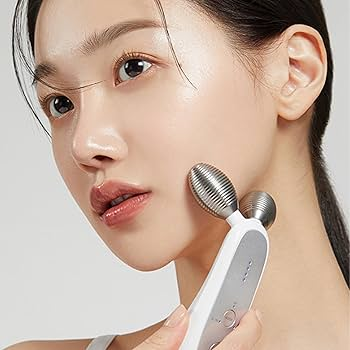The Elixir of Radiance: Vitamin C
Few ingredients have achieved the near-mythical status of vitamin C. Touted as a miracle worker, it promises to brighten, protect, and rejuvenate our skin. But is it truly the holy grail of skincare, or is its reputation merely the result of clever marketing? To answer this question, we must delve into the science, the nuances, and the artistry behind this celebrated ingredient.
The Why: Why Do We Need Vitamin C?
Vitamin C, or L-ascorbic acid, is more than just a buzzword in the beauty industry. It is a potent antioxidant, a collagen builder, and a brightening agent, all rolled into one. But what does this mean for our skin?
The Protector: Vitamin C is a formidable shield against free radicals, those pesky molecules that form as a result of environmental stressors like pollution, UV rays, and even emotional distress. Free radicals wreak havoc on our skin, breaking down collagen and elastin, leading to premature aging. Vitamin C steps in as a defender, neutralizing these radicals and preventing damage before it begins.
The Enhancer: While vitamin C cannot replace sunscreen, it works in harmony with it. By boosting the efficacy of your SPF, it prolongs the time it takes for your skin to redden under the sun. Think of it as your sunscreen’s loyal sidekick, amplifying its protective powers.
The Builder: Collagen is the scaffolding of our skin, and vitamin C is its indispensable co-conspirator. It activates enzymes like prolyl hydroxylase and lysyl hydroxylase, which are essential for collagen production. Forget collagen supplements; vitamin C is the real hero here, ensuring your skin remains firm and supple.
The Brightener: For those battling hyperpigmentation, melasma, or uneven skin tone, vitamin C is a game-changer. While it may not be a standalone solution, it works wonders in conjunction with other brightening agents, helping to fade dark spots and restore luminosity.
The Who: Who Can Benefit from Vitamin C?
The short answer? Everyone. Vitamin C is a universal ally, but its form and concentration must be tailored to individual skin types and concerns. Not all vitamin C is created equal, and understanding its various incarnations is key to unlocking its potential.
The What: The Many Faces of Vitamin C
Vitamin C is an umbrella term, encompassing a range of derivatives, each with its own strengths and weaknesses. Broadly, it can be divided into two categories: active and inactive forms.
The Active Form: L-Ascorbic Acid
L-ascorbic acid is the gold standard of vitamin C, revered for its potency and immediate efficacy. When applied to the skin, it gets to work instantly, delivering antioxidant protection and collagen-boosting benefits. However, this powerhouse is not without its drawbacks.
Irritation: L-ascorbic acid is highly acidic, making it unsuitable for sensitive or inflamed skin. Its sweet spot lies between 5% and 20% concentration; anything higher is overkill and can lead to irritation.
Instability: This form of vitamin C is notoriously unstable. Exposure to light, air, or heat can render it ineffective, turning it a telltale dark orange hue.
Odor and Staining: Let’s not mince words—L-ascorbic acid can smell like hot dogs and may leave a yellowish tint on the skin.
Best For: Normal, stable skin types. If your skin is oily, acne-prone, or sensitive, proceed with caution.
The Inactive Forms: A Gentler Approach
For those who find L-ascorbic acid too harsh, the inactive forms of vitamin C offer a gentler alternative. These derivatives convert to active vitamin C once absorbed into the skin, providing similar benefits without the irritation.
Ester Forms
Ascorbyl Palmitate: A combination of L-ascorbic acid and palmitic acid, this ester is less potent but offers moisturizing properties, making it ideal for dry skin.
Ascorbyl Tetraisopalmitate (ATIP): Highly stable and oil-soluble, ATIP is perfect for sensitive skin and beginners. It brightens, stimulates collagen production, and penetrates deeply.
Tetrahexyldecyl Ascorbate: A personal favorite, this lipid-soluble derivative is exceptionally stable and effective, making it suitable for most skin types, especially sensitive or reactive skin.
Non-Ester Forms
Sodium Ascorbyl Phosphate (SAP): Known for its stability, SAP is a good choice for oily and acne-prone skin. It helps regulate sebum production and combats acne-causing bacteria.
Magnesium Ascorbyl Phosphate (MAP): While not the strongest antioxidant, MAP is effective for brightening and can be paired with other actives for enhanced results.
Ascorbyl Glucoside: A stable derivative combined with glucose, it’s a solid choice for beginners and those seeking a gentle introduction to vitamin C.
Ethyl Ascorbic Acid (EA): Ideal for redness-prone skin, this derivative has anti-inflammatory properties and works well for those with a compromised skin barrier.
The How: Incorporating Vitamin C into Your Routine
Choosing the right form of vitamin C is only half the battle; how you incorporate it into your skincare routine is equally important. Here are a few tips to maximize its benefits:
Layer Wisely: Apply vitamin C in the morning, after cleansing and before moisturizing. Its antioxidant properties work best when paired with sunscreen.
Start Low and Slow: If you’re new to vitamin C, begin with a lower concentration and gradually work your way up to avoid irritation.
Store Properly: Keep your vitamin C products in a cool, dark place to preserve their efficacy.
The Verdict: Is Vitamin C the Holy Grail?
Vitamin C is not a one-size-fits-all solution, but it is undeniably a skincare powerhouse. Whether you’re seeking protection, brightening, or collagen support, there’s a form of vitamin C tailored to your needs. Its versatility and efficacy make it a worthy addition to any skincare routine, provided you choose wisely and use it thoughtfully.
So, is vitamin C the holy grail? Perhaps not in the literal sense, but it is certainly a radiant elixir, offering a touch of magic to those who embrace it.
A Curated Selection of Vitamin C Products
For those eager to explore the world of vitamin C, here are a few recommendations to consider:
L-Ascorbic Acid: SkinCeuticals C E Ferulic (a cult classic for normal skin types).
Ascorbyl Tetraisopalmitate (ATIP): Medik8 C-Tetra Lipid Vitamin C Serum (ideal for sensitive skin).
Tetrahexyldecyl Ascorbate: Sunday Riley C.E.O. Glow Vitamin C + Turmeric Face Oil (a luxurious option for most skin types).
Sodium Ascorbyl Phosphate (SAP): The Ordinary Vitamin C Suspension 23% + HA Spheres 2% (a budget-friendly choice for oily, acne-prone skin).
Ethyl Ascorbic Acid (EA): Paula’s Choice C15 Super Booster (perfect for redness-prone skin).
Each of these products embodies the elegance and efficacy that vitamin C promises, offering a touch of understated luxury to your daily routine.
In the end, vitamin C is more than just an ingredient; it’s a celebration of self-care, a nod to the artistry of skincare, and a testament to the beauty of science. Whether you’re a seasoned enthusiast or a curious beginner, there’s a place for vitamin C in your journey toward radiant, healthy skin.














